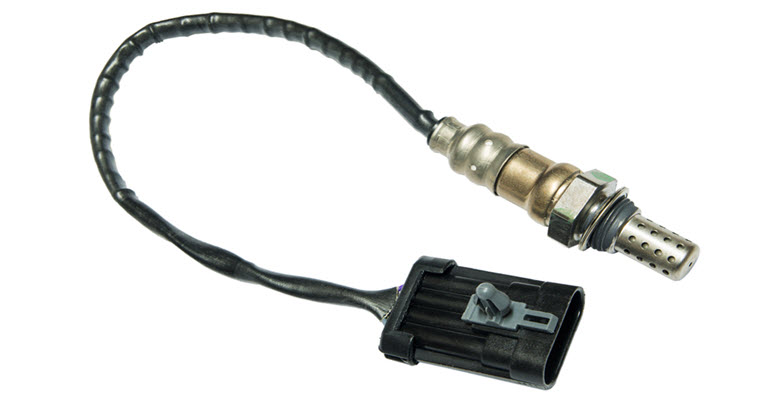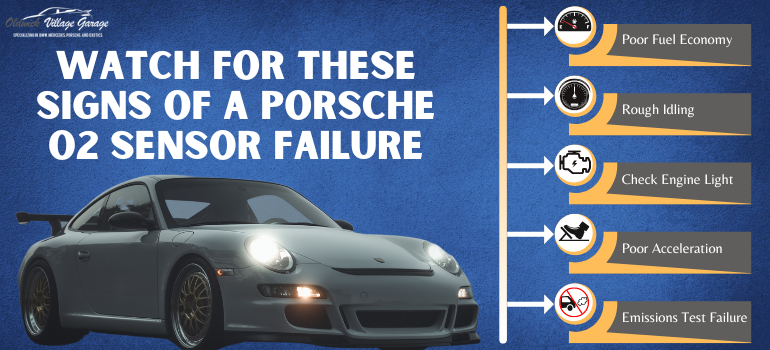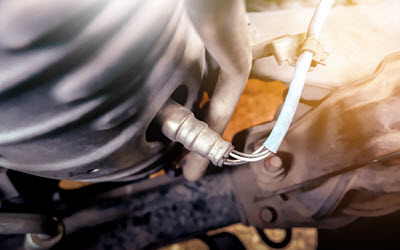
Watch for These Signs of a Porsche O2 Sensor Failure
One of the components that is critical for the proper functioning of a Porsche’s engine is the O2 sensor, also known as the oxygen sensor. The O2 sensor is responsible for measuring the amount of oxygen in the exhaust system and communicating this information to the engine’s computer. This data is then used to adjust the air-to-fuel ratio in the engine, ensuring that the engine is running at peak performance by receiving the exact amount of air to the ratio of fuel. This produces combustion, which is converted into the horsepower you’ve come to love and expect from your Porsche.
The O2 sensor is also responsible for monitoring the catalytic converter’s performance, which reduces harmful emissions from the exhaust system. When the O2 sensor fails, you can experience engine problems, performance decline, and a host of other problems. Let’s look closer.
How to Tell if it is a Failing O2 Sensor
If the O2 sensor in your Porsche is starting to fail, there are several signs you may notice. The most common symptoms include:

- Poor Fuel Economy: If your Porsche’s O2 sensor is not working correctly, it can cause the engine to run too rich or too lean. Running too rich means that the engine is receiving more fuel than it needs, which can lead to poor fuel economy. Running too lean means that the engine is not receiving enough fuel, which can also lead to poor fuel economy. You may notice that you need to refuel more often than usual or that your Porsche is consuming more fuel than it normally does.
- Rough Idling: If your Porsche’s engine is idling roughly or if you feel vibrations in the car while it’s at idle, it could be a sign that the O2 sensor is failing. The O2 sensor plays a crucial role in regulating the air-fuel mixture, and a malfunctioning sensor can cause the engine to run too rich or too lean, which can lead to rough idling.
- Check Engine Light: A failing O2 sensor can trigger the check engine light on your Porsche dashboard. The check engine light can indicate a range of issues, including a problem with the O2 sensor. If you see the check engine light illuminated on your Porsche’s dashboard, it is important to have the vehicle inspected by a qualified mechanic.
- Poor Acceleration: If your Porsche is slow to accelerate or you notice a decrease in power when accelerating, it could be a sign of a failing O2 sensor. When the engine is not receiving enough air or fuel to sync the combustion process, it can result in poor performance.
- Emissions Test Failure: The O2 sensor is critical for monitoring the catalytic converter’s performance and ensuring that harmful emissions are reduced. If your Porsche fails an emissions test, it could be a sign that the O2 sensor is not working correctly. A malfunctioning O2 sensor can cause the catalytic converter to fail, which can lead to costly repairs.
What to Do if Your O2 Sensor Fails
If you suspect that your Porsche’s O2 sensor is failing, it is important to have it inspected by our qualified mechanics. In most cases, the O2 sensor will need to be replaced. Quick replacement will help to ensure that your Porsche is running at peak performance and avoid any potential damage to other components in the engine.
Get Help from the Mechanics at Oldwick Village Garage
Oldwick Village Garage is your dependable  auto center! We specialize in the maintenance and repair of luxury European vehicles, like your Porsche. At Oldwick Village Garage, we prioritize the satisfaction of our customers, which is why we ensure that the work is done carefully and accurately every time a vehicle is brought to us. Our repairs are carried out with the best quality tools and knowledge of our mechanics. We also ensure that our service is affordable to all.
auto center! We specialize in the maintenance and repair of luxury European vehicles, like your Porsche. At Oldwick Village Garage, we prioritize the satisfaction of our customers, which is why we ensure that the work is done carefully and accurately every time a vehicle is brought to us. Our repairs are carried out with the best quality tools and knowledge of our mechanics. We also ensure that our service is affordable to all.
We proudly serve drivers in Oldwick Village Garage, and Tewksbury, NJ. You can reach us by calling or stop by our garage to speak with our mechanics or staff and set up a convenient appointment. We look forward to earning your repeat business today.

